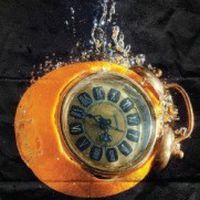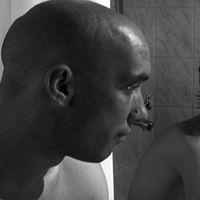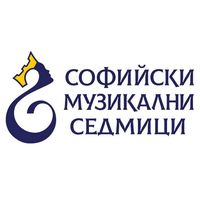Bulgarian Cinema on its way to the International Dialogue
Bulgarian cinema by its nature is a native cinema that considers local problems. Most of the Bulgarian films (especially in the past) could hardly be accepted by foreign audiences. But nowadays, filmmakers are trying to be more communicative. One reason is that after the political turn in 1989 it is harder to make a film in Bulgaria without producers' help from abroad. As in most of the socialistic countries the film producing was entirely state function in the past. After the economical changing in Bulgaria the system of film financing dropped far behind the desirable contemporary level.The main source of money is the National film center which has very low budget that should be divided between six or seven feature film projects per year. The selection is made by board of Bulgarian intellectuals connected not just with cinema but with literature and theatre too. The members are elected per every two years. Unfortunately the choosing criteria is not well-grounded and sometimes really good projects do not find any support.
Another opportunity for the filmmakers is the European Union programme Media which has been working in Bulgaria since 2002 . The criteria about application are the same as in the others European countries. Actually the Bulgarian Mediadesk is just a mediator between Bulgaria and Brussels where projects from all over Europe compete. The first (and the only by now) film sponsored by Media and which has been already completed and premiered is the documentary “DIVORCE – ALBANIAN STYLE” by Adela Peeva
The distribution scheme is not well developed too. On the Bulgarian market local films has to compete with the worldwide movie hits and only few companies take the risk to distribute them, for example “Pro films” . The best way for distributing a Bulgarian film by now is the National Television. Co-producting with a foreign country can easily increases the chance to find audience abroad more often than in Bulgaria. Of course, this depends on the film quality and ability to communicate at universal level.
The last 18 years were a very hard period for Bulgarian cinema. In а really short time, filmmakers wanted to make up for everything that had been forbidden during the socialism (for example we hadn’t our own Nouvelle Vague as in Poland and ex-Czhechoslovakia). Several experiments dealing with the form and film language appeared but the results were poorly received films that created distance between filmmakers and audience [for example “THE SILENCE”(1991; by Krasimir Kroumov) and “SOMETHING IN THE AIR” (1996; by Peter Popzlatev)].
| At the beginning of the 21st century, the opposite tendency could be noticed. Directors tried to return to the attention and dialogue with audience but, instead of creating films reflecting the contemporary reality they became to imitate Hollywood genre. A pity because Bulgarian cinema did not have either money or cultural preconditions for making qualified commercial productions following the Hollywood rules. | MILA FROM MARS” (2004) by Zornitsa Sofia |
The best exclusion of this tendency was “LETTER TO AMERICA”(2000), a feature debut by Iglika Trifonova who is now acclaimed as one of the most promising contemporary filmmakers in Bulgaria.
In recent years, Bulgarian cinema has taken the position in the middle. Most of the new films communicate fluently with Bulgarian and foreign audiences at the same time. This is true even if Bulgarian films seem to be recognized abroad first. This was the case for “MILA FROM MARS” (2004; directed by Zornitsa Sofia) with its experimental visual aesthetics was firstly acclaimed with prizes at the Sarajevo Film Festival and after that received half of the Grand Prize at the national cinema festival Golden Rose in Varna.
Almost the same happened in 2006 with “CHRISTMAS TREE UPSIDE DOWN” (2006; by Ivan Cherkelov and Vassil Zhivkov) – maybe the wisest and most authentic Bulgarian film in the past 20 years, which took a half Special Prize of the Jury at Karlovy Vary.
In Bulgaria there were lots of polemics between critics, part of the audience were leaving the screening. Probably Bulgarian moviegoers need a certain time distance to accept the film because its image world is so close to our nowadays reality.
| “LADY ZEE” (2005; directed by Georgi Djulgerov) /5/, “MONKEYS IN THE WINTER” (2006; by Milena Andonova) and “INVESTIGATION” (2006; by Iglika Trifonova) have had success abroad and at home – they are very different among themselves but are well-made, intelligent films, dealing with important contemporary problems. |  “INVESTIGATION” (2006; by Iglika Trifonova) |
Djulgerov received two prizes at the 2006 edition of the Sofia Film Festval. The FIPRESCI Award and the Kodak Award. The director and the cinematographer decided to give their award in film negative worth 3000 dollars to three young filmmakers Maia Vitkova, Svetoslav Draganov and Dimitar Sardgev. This gift may well generate great titles to be seen abroad and in Bulgaria – hopefully.
Article by Mariana Hristova
Mariana was born in 1980 in Troyan, Bulgaria and studied Cinema Studies in the National Academy of Theatre and Film Art, Sofia from 2000 to 2005. Still completing her thesis on Pedro Almodovar, she already works as a freelance film critic mainly for magazines and newspapers.
Online Publication for the the international federation of film critics - FIPRESCI - Rotterdam 2007 Conversation with Ragner Bragasson: “FAMILY DISASTERS”
Mariana publishes on the International Film Festival Rotterdam's Blogs pages - the IFFR Trainee Project for Young Film Critics. The programmers report on the research trips, their observations on remarkable films, meetings with filmmakers and producers in different parts of the world - nearby or far away.
by Mariana Hristova
Similar content
By Kerrine Goh
22 Apr 2008
posted on
19 Apr 2011
deadline
01 Dec 2012
posted on
03 Sep 2010
posted on
20 Jul 2011




